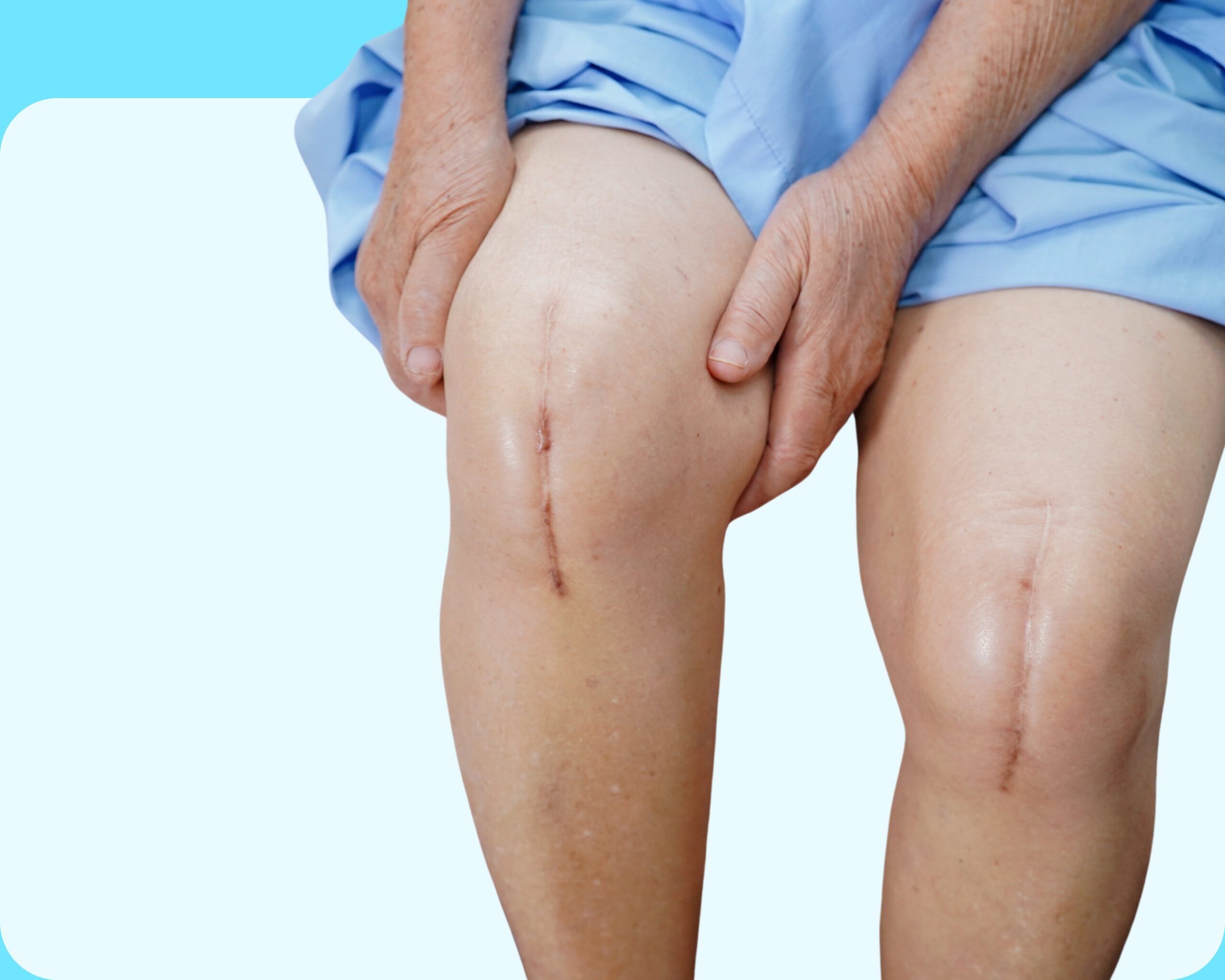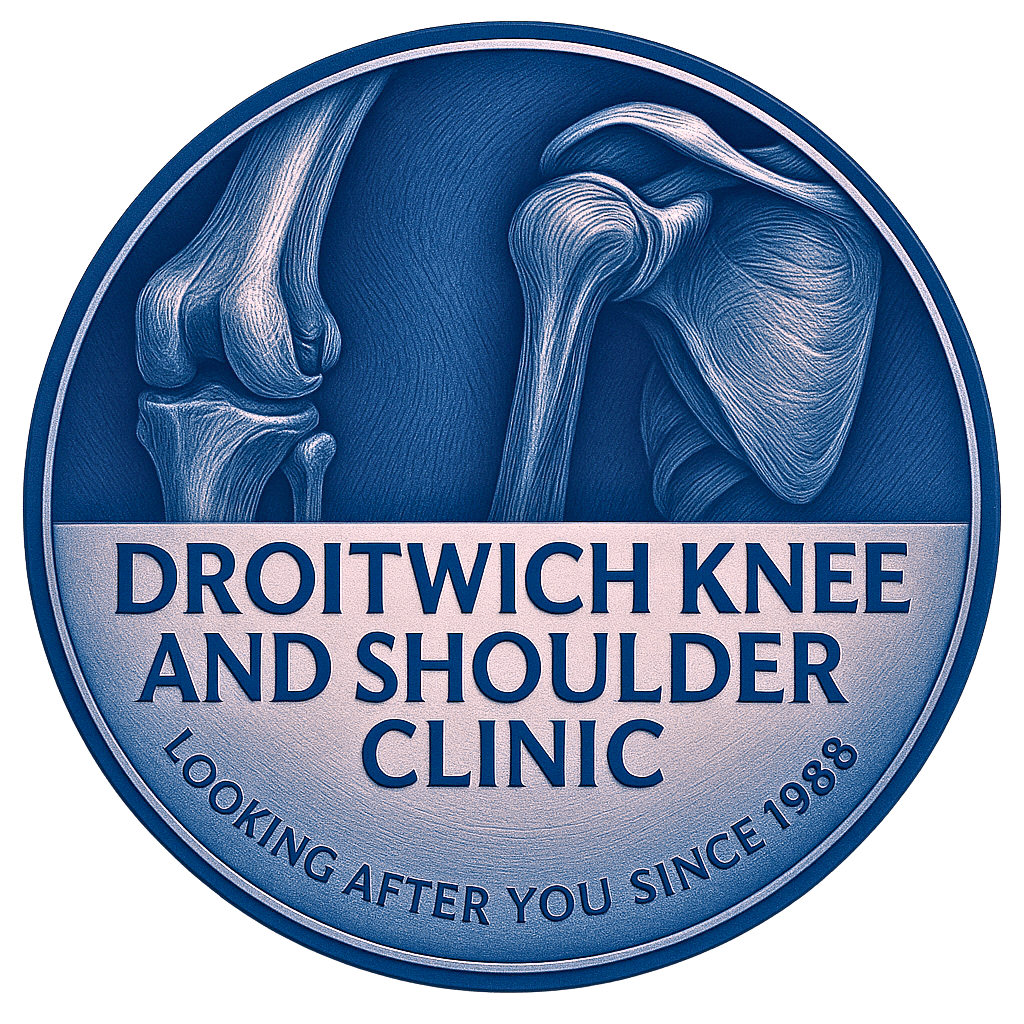Knee Replacement
Restore your mobility and enjoy life again with expert knee replacement surgery, offering partial and total options for faster recovery.


Advanced Knee Replacement Surgery & Personalised Care
Living with constant knee pain can affect every part of your life — from walking and climbing stairs to enjoying hobbies or simply getting a good night’s sleep. When non-surgical treatments are no longer effective, a knee replacement may be the best option to restore mobility, reduce pain, and improve quality of life.
At our specialist clinic, we provide expert knee replacement surgery including partial knee replacement, total knee replacement (TKR), and unicompartmental partial knee replacement. Our experienced knee replacement surgeons guide you through every stage — from consultation to recovery — ensuring safe, effective, and personalised care.

What is a Knee Replacement?
A knee replacement operation involves removing the damaged or worn parts of your knee joint and replacing them with an artificial implant. Depending on the extent of damage, you may need a:
- Partial Knee Replacement – where only one side of the knee joint is replaced.
- Total Knee Replacement (TKR) – where the entire knee joint is replaced.
- Unicompartmental Partial Knee Replacement – a less invasive option suitable for damage in just one compartment of the knee.
Modern implants are made of titanium, ceramic, or durable plastic, designed to replicate natural movement and reduce pain long-term.
Why Choose Us for Knee Replacement?
You may be considered for knee replacement surgery if you experience:
- Severe pain or stiffness affecting daily activities
- Pain at rest or at night
- Knee deformity (bowing or instability)
- Limited improvement from physiotherapy, medication, or injections
Benefits of Knee Replacement
- Significant pain relief
- Improved mobility and walking ability
- Better quality of life for work, hobbies, and exercise
- Long-lasting results (often 15–20 years)
Risks and Disadvantages of Knee Replacement Surgery
Like any major procedure, knee replacement surgery carries risks, including:
- Infection
- Blood clots
- Implant wear or loosening
- Stiffness or persistent pain
However, with advanced techniques, robotic-assisted procedures, and strict aftercare, complications are rare.
Benefits of Knee Replacement
- Long-lasting pain relief
- Improved mobility and flexibility
- Correction of deformities such as bow legs or knock knees
- Increased independence in daily life
- High success rate with long-term durability
Knee Replacement Recovery and Rehabilitation
Recovery from knee replacement is just as important as the surgery itself. Immediately after the operation, you’ll begin physiotherapy exercises to strengthen muscles and restore movement.
Typical recovery milestones include:
- Walking with support within 24–48 hours
- Driving after 6 weeks (depending on healing)
- Returning to work in 6–12 weeks (depending on job type)
- Full recovery within 6-12 months
Best sitting position after knee replacement:
Avoid low chairs; sit on firm chairs with armrests to reduce strain.
Exercises after knee replacement:
Daily strengthening and flexibility exercises are vital. Your physiotherapist will also guide you on exercises to avoid after knee replacement (e.g., high-impact activities).
Cost of Knee Replacement
Many patients ask, “How much does a knee replacement cost privately?”
The cost of knee replacement varies depending on whether you need a partial knee replacement or total knee replacement, the implant used, and hospital stay length. We provide transparent pricing and will discuss private knee replacement costs in detail during your consultation.
Alternatives to Knee Replacement
If you’re not ready for surgery, there are alternatives to knee replacement, including:
- Physiotherapy
- Weight management
- Pain relief injections (steroid, PRP, or hyaluronic acid)
- Knee bracing
- Medications and lifestyle changes
However, when joint damage is severe, knee replacement often provides the most effective long-term solution.
Top 5 Mistakes After Knee Replacement
To achieve the best recovery, avoid these common errors:
- Skipping physiotherapy sessions
- Sitting for long periods without moving
- Ignoring swelling and pain management
- Returning to high-impact sports too soon
- Not following medical advice on exercises and activity levels
OUR SERVICES
FAQs
Most modern implants last 15–20 years or more, depending on activity levels and overall health.
Initial recovery takes about 6–12 weeks, with full recovery up to a year.
Yes, but it may feel uncomfortable. Many patients can kneel with practice and physiotherapy guidance.
High-impact sports like running and jumping should be avoided. Walking, swimming, cycling, and golf are encouraged.
Costs vary based on procedure type, hospital, and implant choice. We provide tailored quotes after consultation.
Injections, physiotherapy, medications, and bracing may help but are often short-term solutions.
Sleep on your back with a pillow under your operated leg or on your side with a pillow between your knees.
Physiotherapy, pain relief medication, and gentle massage can help. Persistent pain should be reviewed by your surgeon.
The operation usually lasts 1–2 hours, depending on the complexity.

